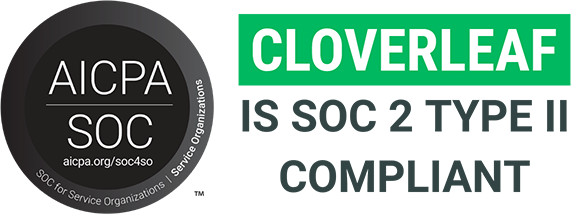Part of being a great manager is knowing when to use certain approaches to leading. While coaching isn’t new, in the last 25 years coaching in the workplace has become more widely accepted. It’s important not to overcomplicate what coaching is and to recognize what it isn’t (it’s not therapy or feel-good fluff).
In its simplest definition, coaching is facilitating positive change with individuals and teams to unlock potential. This happens through a subtle nuance in how the leader communicates and empowers the team member to own their experiences. Effective coaching is also learning by…coaching. You can’t learn to coach by just reading a book or taking an online course. It’s a leadership skill that is honed over time.
Coaching Skills: It all starts with Listening
Active listening is one of the most critical fundamental leadership coaching skills you can develop. When we are actively listening we are NOT interrupting, interjecting our own stories and thoughts. We are OTHERS focused. We might ask some clarifying questions and comment on what the person is saying:
- It seems like you are really frustrated with the current situation, is that fair to say?
- Can you say more about __________ (Insert something you aren’t clear about)
- You’ve shared this challenge with me a few times, are you noticing any pattern?
- I want to thank you for coming to me with your feedback about the project. I really appreciate your attention to detail.
As you listen more intently, your team member will share information with you that can help clue you into asking the right questions. The coaching approach here is to keep the focus off of yourself, your knowledge, and your ideas. Yes, it’s true. Coaching is not about you.
Coaching Skills: Asking & Goal Setting
Once we are empowering team members in doing their own thinking, it’s important to support team members in making their ideas actionable. The next two critical coaching skills for managers to explore are powerful questioning and goal setting.
Powerful Questions
Part of learning this coaching style is ASKING before launching into TELLING. Many people believe that they are great coaches, but they are often great MENTORS, sharing expertise. Here are a few examples of powerful questions effective leaders use:
- What is the next step here given the goal you’ve set for yourself?
- What would it look like if this problem were solved?
- What would be the impact on you if you received this promotion?
Goal Setting
Ideas die unless they become actions. A good coach helps team members transform ideas into action.
- What is a goal you could set to help avoid this problem in the future?
- How can I support you in your goal to be promoted to leadership?
- What best practices would you need to adopt to support you in accomplishing your goal?
When To Use Coaching…and When Not To Use Coaching
That might all sound great, but am I constantly questioning everyone on my team? The answer is: NO. If someone asks you where a file is located, you are not going to respond: Well what would be the impact on you if I found that file?
You are going to give them the file or direct them on how to get it.
Part of understanding when coaching employees in the workplace is to understand more about its intent: to develop the competence and confidence within individuals by inviting them to do their best thinking. Here’s when you want to use coaching:
- When an employee is repeatedly coming to you with the same issue.
- When a team member is having interpersonal issues with another team member.
- When a team member expressed a desire to move up within the organization.
- When preparing a team member to take on new responsibilities.
As you continue in your leadership role you’ll develop the intuition and emotional intelligence to know when to coach and when not to coach.

HUMAN SKILL PROGRAMS ARE HITTING LIMITATIONS...
- Close the widening gap between learning and on-the-job application
- Overcome the tension of pausing productivity for development opportunities
- Integrate learning so it is actually in the flow of work
- The evolution of human skill development
- What Automated Coaching™ is and how it works.
The GROW Model For Coaching
The GROW coaching model, designed by Sir John Whitmore is one of the easiest to execute applications of coaching in the workplace. Follow these simple steps in a formal or informal coaching conversation for optimal results. With each step of the model, you’ll find helpful questions to guide you at the facilitator.
Goal: The coaching process starts with establishing a goal. It could involve performance goals, development goals, problem-solving, decision-making, or a goal for the coaching session.
- What do you want to achieve from this conversation?
- What do you really want?
- What would you like to accomplish?
- What result are you trying to achieve?
- What outcome would be ideal?
- What do you want to change?
- What would the benefits be if you achieved this goal?
Reality: Next you want to get a read on the current state or situation. What is actually happening or NOT happening? Great managers take it slow here and leverage their active listening skills:
- What is happening right now in a nutshell?
- What steps have you already taken to reach your goal?
- On a scale of 1 to 10, how confident are you that you can accomplish this goal/resolve this problem?
- What strategies have you used in the past that were successful?
- What is the single biggest obstacle standing in the way of you achieving your goal?
- What is working well right now?
- What could you do better this time?
- What could be another possible interpretation of what _________said or did?
Options: Once you both have a clear understanding of the situation, the desired goal, or the problem, the coaching conversation turns to what the team member can do to reach their goal.
- What are your current options?
- What is the best next step you could take here?
- What would happen if you did nothing?
- What has worked for you already? How could you do more of that?
- What is the most challenging part of this particular goal?
- What is a similar situation you’ve faced in the past and what did you do to resolve it?
- What has helped you achieve goals in the past?
- What’s the upside/downside of your options right now?
- What option is your gut telling you to try first?
- How would you like things to go if there were absolutely no limits?
Will or Way Forward: You close out a coaching conversation by gaining commitment from your team member on specific actions they are going to take on. This is where the person begins to own their results.
- What do you think you need to do right now?
- What does success look like here?
- How can I support you with your desired result?
- Is there anything missing from your plan or next steps?
- What will one small step you take now?
- Is there anyone else you need to have a conversation with to ensure your success?
- Do you need to block time on your calendar for any relevant actions?
- When should we check back in on your progress?
It may seem like a lot of questions, and the truth is a successful coaching conversation is one where you don’t say much. You teach others to lead themselves. At times team members may get frustrated and just want to be told what to do. This is the path of least resistance for some, but in the long run, it keeps them stuck.
And in the midst of it all, remember that there are times when a leader needs to step in and be very direct in their approach in order to add clarity to a situation. This isn’t a coaching skill, but is a valuable tool that you’ll still need as you lead.
We hope this list of effective coaching skills for managers has helped you. To learn more about how to develop coaching skills, download our e-book right now for free.
About Stephanie Licata
With more than two decades of leadership and management experience, Stephanie Licata is a skilled professional coach, adult learning specialist, consultant and speaker. She has trained thousands of leaders and managers in the art and science of coaching as part of large-scale projects to develop coaching cultures within organizations. Stephanie received her professional coaching certification from New York University, and is also certified at the ACC level with the International Coaching Federation. She holds a BS in counseling and a Masters in Organizational Psychology from Columbia University.



